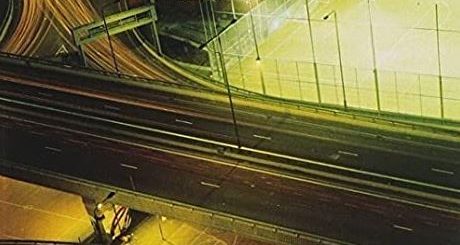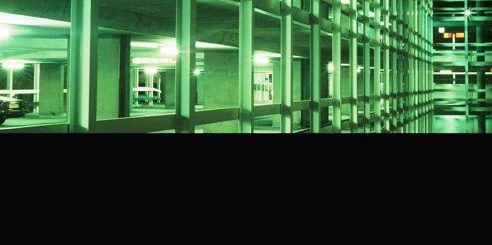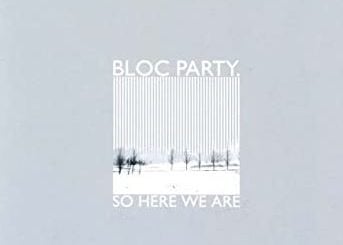Signs by Bloc Party Lyrics Meaning – Unraveling the Poetic Elegy of Grief and Memory
Lyrics
And one for you and one for me
And bluebells in the late December
I see signs now all the time
The last time we slept together
There was something that was not there
You never wanted to alarm me
But I’m the one that’s drowning now
I could sleep forever these days
‘Cause in my dreams I see you again
But this time fleshed out fuller face
In your confirmation dress
It was so like you to visit me
To let me know you were okay
It was so like you to visit me
Always worried about someone else
At your funeral I was so upset
So, so upset
In your life you were larger than this
Statue statuesque
I see signs now all the time
That you’re not dead, you’re sleeping
I believe in anything
That brings you back home to me
I see signs now all the time
That you’re not dead, you’re sleeping
I believe in anything
That brings you back home to me
Amid the pulsating rhythms and jagged guitar lines typical of Bloc Party’s oeuvre, ‘Signs’ emerges as a poignant outlier—a delicate mosaic of grief, memory, and the search for meaning in the aftermath of loss. As listeners, we are invited into an intimate space of remembrance, a sonic canvas where lyricist Kele Okereke paints an elegiac picture dipped in both the personal and the universal.
Unraveling the tapestry of ‘Signs’ requires a deep dive into Okereke’s subtle layers of meaning—a journey through the shadows of mourning and the glimmers of transcendence that follow in its wake. Here, we unfold the narrative of ‘Signs,’ lifting the veil on its hidden meanings and immersing in the emotional gravity of its memorable lines.
The Omens of Loss: Interpreting the Ravens and Bluebells
The allegory begins with two ravens perched in an ‘old oak tree’—a nod, perhaps, to the tropes of Nordic mythology, where the raven symbolizes deep insight and prophecy. In the song’s narrative, these birds bear the weight of a personal signifier, a tacit communication between the protagonist and the vanished other. The mention of ‘bluebells in the late December’ further adds to the mystique, signifying the unnatural, the out-of-place—an allusion to how death disrupts the natural order of things, provoking signs and sightings in unseasonal moments.
These natural metaphors serve as anchors in the ephemeral world of the grieving. They offer tangible touchpoints in a reality that has suddenly become difficult to grasp, weaving a thread through which the bereaved can maintain a connection with the departed, reading signs as messages or assurances from beyond the veil.
Ethereal Encounters: Dream Visits as Catharsis
The figures in Okereke’s dreams are not mere phantoms; they are ‘fleshed out’ and vivid, the realest presence within a surreal plane. Dreams here provide a reprieve from the waking world’s finality, a sanctuary where the singer can interact with a loved one lost. In the ‘confirmation dress,’ the figure adopts an almost childlike innocence, a time of purity and solemnity—an overwhelming reminder of what once was.
Yearning for these nocturnal visits, the protagonist clings to dreams as a source of comfort, reflecting the human need to continually connect with those who have left us. These encounters are therapeutic, a means for the psyche to process the unresolved and the incredulous—the fact that someone who was once so integral to our lives can abruptly become intangible.
Wrestling with Reality: The Song’s Hidden Meaning
Beneath the overt themes of mourning, ‘Signs’ harbors a profound meditation on the nature of belief and perception in the wake of loss. The repeated assurance ‘that you’re not dead, you’re sleeping’ points to a cognitive dissonance—a refusal or inability to accept the irreversibility of death. This mantra-like phrase becomes a coping mechanism, a shield against the crushing permanence of the end.
By professing a belief ‘in anything / That brings you back home to me,’ the lyricist underscores the desperation and depth of grief’s grip, willing to suspend disbelief, to hold onto whatever thread might, even for a moment, banish the finality of death. It’s a universal sentiment, recognizing that in our deepest despair, we grasp for any sign that might lessen the chasm of absence, reaffirming the bond with those we’ve lost.
A Tempest of Emotions: The Waves of Grief
The raw and unguarded confession ‘At your funeral, I was so upset’ captures the maelstrom of feelings that burial rites can evoke. As the protagonist laments the diminishment of a once-vibrant life to ‘statue statuesque,’ we are reminded of the cruel irony inherent in memorials: the attempt to immortalize a dynamic spirit in static form, to capture the essence of a life in inanimate objects or stilled commemoration.
Through this lens, ‘Signs’ can be read as a study in contrasts—between life and death, movement and stillness, presence and absence. These lyrical motifs form the core of Bloc Party’s message: that grief is a tempestuous sea with waves that push and pull, with the bereaved perpetually navigating between the solace of remembrance and the turbulence of loss.
Echoes That Endure: The Song’s Most Memorable Lines
Certain lyrics in ‘Signs’ resonate with a remarkable poignancy that transcends the immediate narrative of the song, etching themselves into the memories of listeners. Lines like ‘I see signs now all the time’ speak to the pervasive nature of grief—the way loss can permeate every aspect of existence, reshaping our interpretation of the world around us.
This haunting refrain becomes not only a personal creed for the protagonist but also a shared anthem for anyone who has felt the sting of absence. It is in these moments where ‘Signs’ transitions from a personal elegy to a communal hymn—a ballad that reverberates with the shared human experience of holding on, letting go, and searching for signs in a landscape forever altered by loss.








